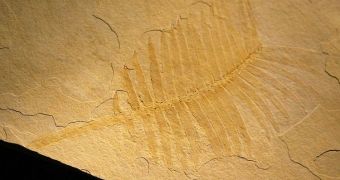The international scientific community knows a group of plants known as cycads for having lived at the same time the dinosaurs did, more than 65 million years ago. However, a new study shows that these plants are not living fossils, since they only developed a few million years ago.
Until now, researchers were convinced that the plants were around before the Cretaceous-Paleogene (K-T) extinction event, which wiped out all dinosaurs more than 65.5 million years ago. It would now appear that the data which were used to make this assessment were flawed.
Scientists at the University of California in Berkeley (UCB, who coordinated the international team of experts that led this investigation, determined that the plant group in fact evolved no more than 12 million years ago, which is a far cry from being a living fossil.
This erroneous classification has made cycads a target for smugglers and collectors, since the plants are very rare. All those who wanted one sought to boast having access to a plant species that shared the world with dinosaurs.
What researchers discovered in their new analysis was that the currently-living species of cycads are in fact the offspring of species that developed during an event that occurred 12 million years ago. At the time, a large number of cycad species developed out of a common ancestor.
“All the cycad species we examined diverged from their nearest relatives in a really narrow window of geologic time, well after the dinosaurs became extinct,” UCB Museum of Paleontology director Charles Marshall explains.
“This was a global event, and then the diversification essentially stopped in the last couple of million years. There is no other group of plants that has this remarkable pattern of diversification,” adds the expert, a coauthor of the new research paper, and a professor of integrative biology at the university.
Details of the new investigation were published in the October 20 issue of the journal Science Express.
“We can now say that living cycad species are not ancient or leftovers from dinosaur times. They evolved independently of dinosaurs only 12 million years ago. The recent radiation of cycads radically changes our view of these emblematic living fossils,” expert Nathalie Nagalingum adds.
She holds an appointment as a research scientist at the Royal Botanic Gardens in Sydney, Australia. The expert was the leader of the investigation while a post-doctoral fellow in Marshall’s laboratory at Harvard University.
“Cycads are very slow-growing plants, so it’s hard to predict whether cycads can survive, now that climate change is occurring at a much faster rate,” she concludes.

 14 DAY TRIAL //
14 DAY TRIAL //